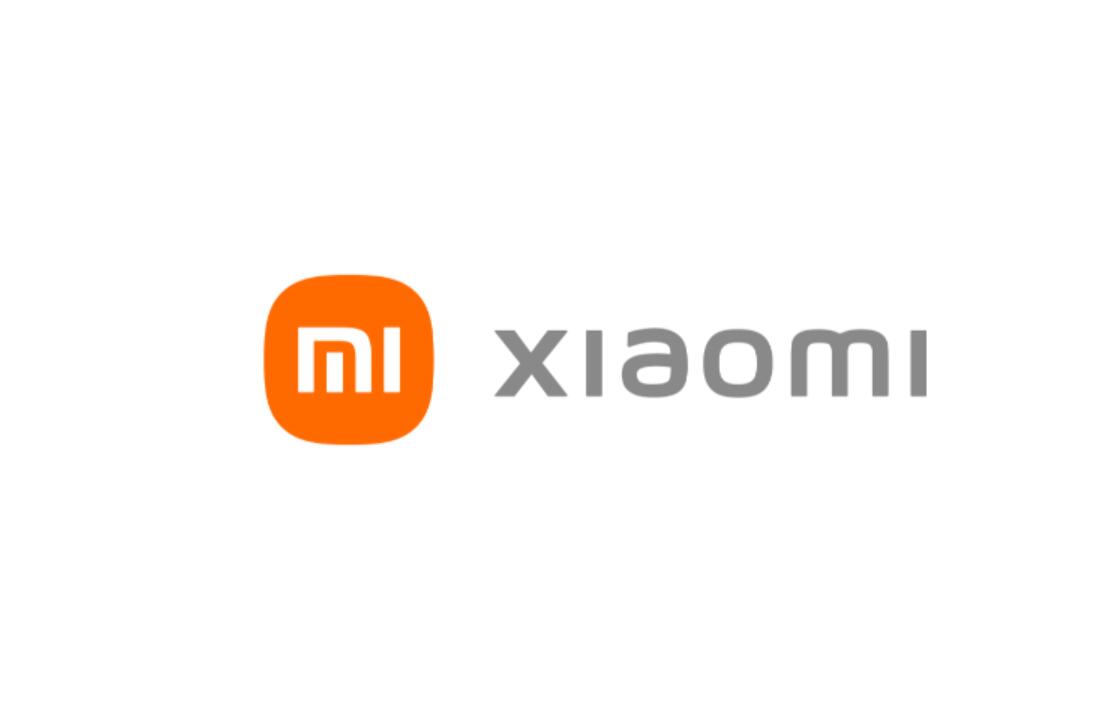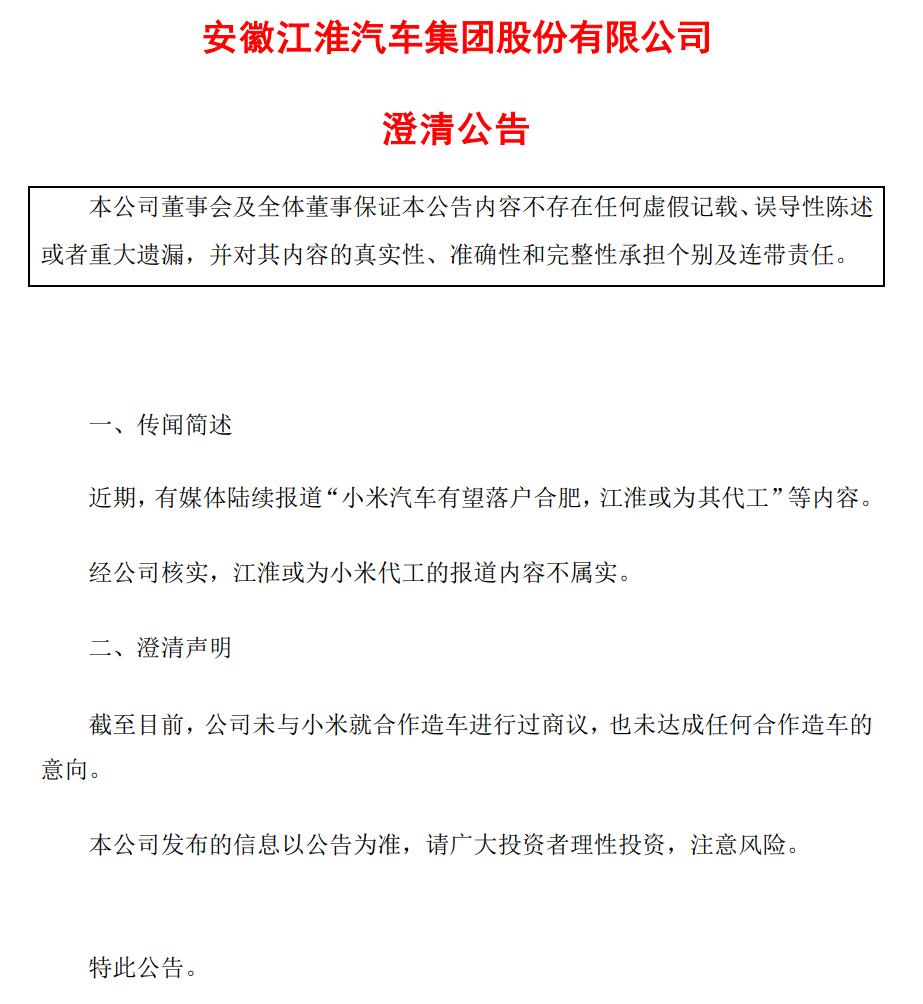
How smartphone giant Xiaomi will produce its cars has been the focus of attention recently. JAC Motors, Nio's OEM, has denied reports that it could potentially be OEM for Xiaomi's car business.
JAC said in an announcement on Thursday that after internal verification, "the report that JAC may be the OEM for Xiaomi is not true.
So far, JAC has not discussed or reached any intention to cooperate with Xiaomi on car manufacturing, the company said.
Tech media outlet 36kr on Tuesday cited sources as saying that Hefei, where Nio China is headquartered, is trying to get Xiaomi's car business to settle there.
The report also cited an unnamed JAC source as saying that the company may OEM for Xiaomi's auto business.
"JAC has a mature OEM system and has accumulated a lot of experience working with Nio and VW," the source said.
JAC has been OEM for Nio for more than five years, and the two formed a joint venture in March this year to expand production, with Nio holding a 49 percent stake.
In May, JAC and Nio renewed their agreement for three years and plan to expand their annual production capacity to 240,000 units.
Lei Jun, the founder of Xiaomi, was one of the earliest investors in Nio, with a stake in Nio through Shunwei Capital, and Hefei had invested RMB 7 billion ($1.08 billion) to give Nio a lifeline.
"Hefei has a good base of new energy vehicle industry, which is attractive to Xiaomi," the report said, citing relevant investment sources.
Construction has already begun on an electric vehicle industrial park in Hefei with a planned annual capacity of 1 million units, which will be operational in the third quarter of 2022. "This is a favorable condition for Xiaomi's auto business," the source said.
The person should be referring to Neo Park, an electric vehicle industrial park jointly built by Nio and the Hefei municipal government, which officially started construction on April 29.
The park will invest RMB 50 billion in the first phase and its total annual output will reach RMB 500 billion. It will have an annual capacity of 1 million vehicles and 100GWh of batteries.
